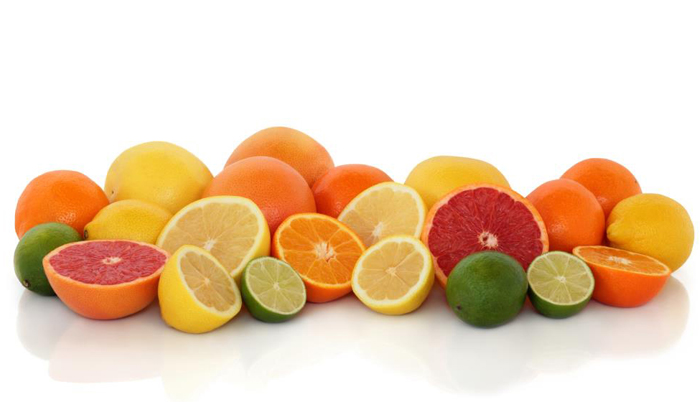![]() Home > Lifestyle
Home > Lifestyle
Eating More Citrus Fruits Is An Easy Way To Prevent Dementia

![]() February 8th, 2019 | 09:39 AM |
February 8th, 2019 | 09:39 AM | ![]() 289 views
289 views
NATURALNEWS.COM
A recent study made by researchers from Tohoku University in Japan revealed that citrus lovers are less likely to develop age-related cognitive impairment and dementia. In the study, which appeared in the Journal of Nutrition, the team found that older people who eat oranges, lemons, grapefruits, and limes, among others, can reduce their risk of developing dementia by over a quarter.
The study, which spanned for up to seven years, looked at data from over 13,000 older adults in Japan, which included their diet and brain health. During this time, the team examined their rate of consumption of citrus fruits and whether or not they have developed some form of cognitive impairment — including dementia. The results were positive: Researchers found a direct link between frequent consumption of citrus fruits and improved memory and brain health. Among the adults who were part of the study, those who ate lemons, limes, and oranges daily had decreased their chances of developing dementia by at least 23 percent, compared to those who just ate it less than twice a week. In addition, those who did not regularly eat citrus fruits were at risk of experiencing age-related cognitive decline.
According to the researchers, the neuroprotective effect shown by those who regularly ate oranges and lemons can be traced to nobiletin, a brain-boosting flavonoid mainly found in the peels of various citrus fruits. Based on earlier studies on the compound, nobiletin has been found to slow down and even reverse the signs of age-related cognitive impairment and memory loss, based on animal studies.
A recent study made by researchers from Tohoku University in Japan revealed that citrus lovers are less likely to develop age-related cognitive impairment and dementia. In the study, which appeared in the Journal of Nutrition, the team found that older people who eat oranges, lemons, grapefruits, and limes, among others, can reduce their risk of developing dementia by over a quarter.
The study, which spanned for up to seven years, looked at data from over 13,000 older adults in Japan, which included their diet and brain health. During this time, the team examined their rate of consumption of citrus fruits and whether or not they have developed some form of cognitive impairment — including dementia. The results were positive: Researchers found a direct link between frequent consumption of citrus fruits and improved memory and brain health. Among the adults who were part of the study, those who ate lemons, limes, and oranges daily had decreased their chances of developing dementia by at least 23 percent, compared to those who just ate it less than twice a week. In addition, those who did not regularly eat citrus fruits were at risk of experiencing age-related cognitive decline.
According to the researchers, the neuroprotective effect shown by those who regularly ate oranges and lemons can be traced to nobiletin, a brain-boosting flavonoid mainly found in the peels of various citrus fruits. Based on earlier studies on the compound, nobiletin has been found to slow down and even reverse the signs of age-related cognitive impairment and memory loss, based on animal studies.
Other food items for brain health
It’s not just citrus fruits that are great for brain health. Here are some foods that are great with the tart fruits — and offer an added layer of protection for the brain.
Leafy greens. Spinach and other leafy greens are great sources of magnesium, which improve blood circulation to the brain.
Blueberries. The antioxidants found in blueberries are known to protect the body against oxidative stress and toxic pollutants. These two, in particular, spell trouble for the brain, since they are linked to neurodegenerative diseases like dementia and Alzheimer’s disease. Studies have also shown that blueberries improve learning ability, as well as motor skills.
Avocado. The main ingredient in guacamole is also a key ingredient in brain health: It contains healthy fats that help regulate blood flow to the brain.
Of course, there are other fruits and vegetables that can help with boosting brain health. The key is to eat (and enjoy!) them on a regular basis.
Source:
courtesy of NATURALNEWS
by Ralph Flores
If you have any stories or news that you would like to share with the global online community, please feel free to share it with us by contacting us directly at [email protected]